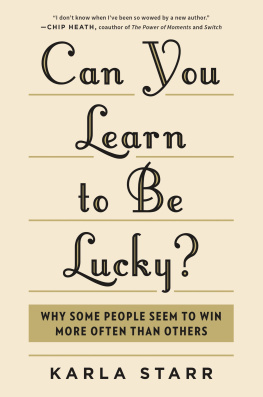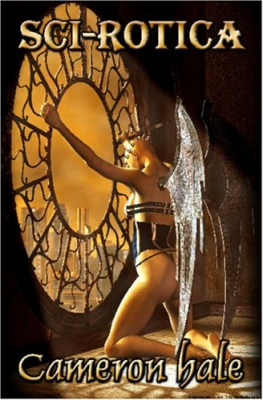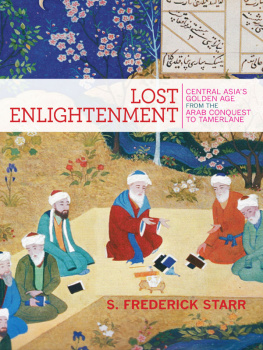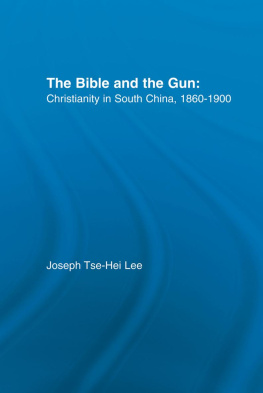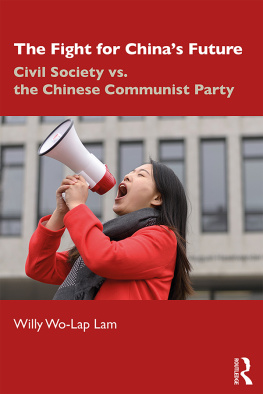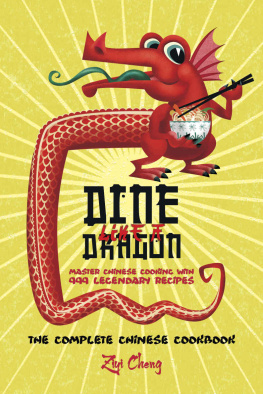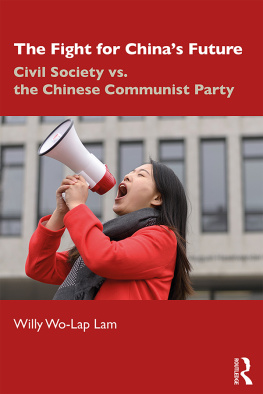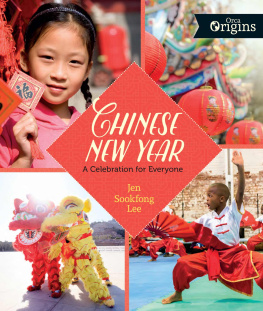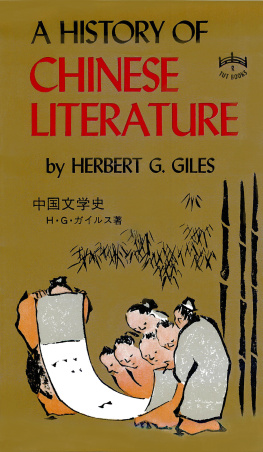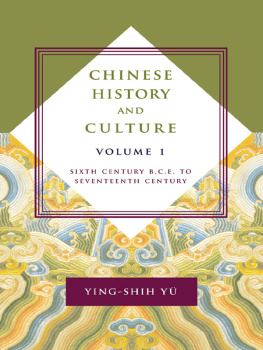Starr - Chinese Theology
Here you can read online Starr - Chinese Theology full text of the book (entire story) in english for free. Download pdf and epub, get meaning, cover and reviews about this ebook. City: China, year: 2017;2016, publisher: Yale University Press, genre: Religion. Description of the work, (preface) as well as reviews are available. Best literature library LitArk.com created for fans of good reading and offers a wide selection of genres:
Romance novel
Science fiction
Adventure
Detective
Science
History
Home and family
Prose
Art
Politics
Computer
Non-fiction
Religion
Business
Children
Humor
Choose a favorite category and find really read worthwhile books. Enjoy immersion in the world of imagination, feel the emotions of the characters or learn something new for yourself, make an fascinating discovery.

Chinese Theology: summary, description and annotation
We offer to read an annotation, description, summary or preface (depends on what the author of the book "Chinese Theology" wrote himself). If you haven't found the necessary information about the book — write in the comments, we will try to find it.
Chinese Theology — read online for free the complete book (whole text) full work
Below is the text of the book, divided by pages. System saving the place of the last page read, allows you to conveniently read the book "Chinese Theology" online for free, without having to search again every time where you left off. Put a bookmark, and you can go to the page where you finished reading at any time.
Font size:
Interval:
Bookmark:
CHINESE THEOLOGY
CHINESE THEOLOGY
Text and Context
Chlo Starr
Yale UNIVERSITY PRESS
New Haven & London
Published with assistance from the foundation established in memory of James Wesley Cooper of the Class of 1865, Yale College.
Copyright 2016 by Yale University.
All rights reserved.
This book may not be reproduced, in whole or in part, including illustrations, in any form (beyond that copying permitted by Sections 107 and 108 of the U.S. Copyright Law and except by reviewers for the public press), without written permission from the publishers.
Yale University Press books may be purchased in quantity for educational, business, or promotional use. For information, please e-mail (U.K. office).
Set in PostScript Electra with Weiss display types by Newgen North America.
Printed in the United States of America.
Library of Congress Control Number: 2016936590
ISBN 978-0-300-20421-6 (hardcover : alk. paper)
A catalogue record for this book is available from the British Library.
This paper meets the requirements of ANSI/NISO Z39.481992 (Permanence of Paper).
10 9 8 7 6 5 4 3 2 1
In memory of
Zhang Boda
(Bda Chang, 19051951)
Zhao Zichen
(T. C. Chao, 18881979)
the martyred and the bereft
CONTENTS
ACKNOWLEDGMENTS
It is a pleasure to thank the many friends and colleagues who have helped me in numerous ways over the years, from offering advice, to procuring materials or texts, to providing enlightening comments and conversation. Among these I am especially thankful for Glen Dudbridge, Ryan Dunch, He Guanghu, Jason Lam, Leo Leeb, Don Starr, Philip Wickeri, Gerda Wielander, Jean-Paul Wiest, Zhang Jing, and colleagues at Yale Divinity School, East Asian Languages and Literatures, and the Council on East Asian Studies at Yale. For helpful comments on chapters, I am most grateful to Peter Ditmanson, Sharon Kim, Rana Mitter, Linn Tonstad, John Yueh-Han Yieh, the two anonymous readers at Yale University Press, and the six inadvertently onymous readers whose critiques of draft chapters for promotion review helped me hone the volume. I would like to thank the Visiting Fellows and students who patiently read early chapters in class, particularly Liu Jiafeng and Anna Wu Qing; Chen Lang, Xu Xiaohong, and Liu Boyun for translation work, especially help with Buddhist terminology; Christian Meyer and the Globalization team; Henrietta Harrison for hospitality during Harvard-Yenching visits; and colleagues and friends at Yale Divinity School who have read portions, made life more pleasant, or improved my grasp of theology, including mentors Denys Turner and Harry Attridge.
I am very glad of the opportunity publicly to thank Yang Huilin for supporting my initial research at Renmin University in 20082009 via a Hanban fellowship, and to Liu Xiuyan and Geng Youzhuang at Renmin; to Daniel Yeung for a visiting fellowship at the Institute of Sino-Christian Studies in Hong Kong in 2009; to the Henry Luce Foundation for a Theology Fellowship in 20112012, with particular thanks to Michael Gilligan at the Luce Foundation and to Stephen Graham at the Association for Theological Schools. St. Annes College, Oxford, proved a congenial place to write up the final sections of the volume with its Plumer Fellowship in 20142015, for which especial thanks to Tim Gardam and Robert Chard. Thanks also to Rana Mitter (and Dirk Meyer) for a home in the China Centre during my Oxford sabbatical, and to Greg Sterling and the Yale Divinity School, and the Council on East Asian Studies at Yale (and the indomitable Helen Siu), for their generous financial support and sabbatical leave.
The book would have been much depleted without tremendous help from librarians at Yale, Harvard, Beijing, and Oxford. Particular thanks to librarians Michael Meng, Tang Li, Martha Smalley, and Cindy Lu for their help over the years in the East Asian and Divinity School libraries at Yale, and to David Helliwell and Joshua Seufert at the Bodleian.
Sincere thanks and gratitude to Jennifer Banks, Heather Gold, and Mary Pasti at Yale University Press, whose cheerful professionalism and rapid responses to emails have made the stressful process of reviews and revisions so much more pleasant, and to Jessie Dolch for her meticulous and thoughtful copy-editing (and painstaking excision of British English).
And finally, thanks to Peter Ditmanson, Joshua Seufert, beer, Margaret Hillenbrand, and Henrietta Harrison for the title, and to my mother for pretty much everything else in life.
...
A shorter version of in part on an earlier essay, Sino-Christian Theology: Treading a Fine Line between Globalisation and Self-Determination, in Thomas Jansen, Thoralf Klein, and Christian Meyer, eds., Chinese Religions and Globalization (Leiden and Boston: Brill, 2014). Permission to reproduce copyright materials is gratefully acknowledged.
ABBREVIATIONS
| CASS | Chinese Academy of Social Sciences |
| CCP | Chinese Communist Party |
| CCPA | Chinese Catholic Patriotic Association |
| CCYB | China Christian Year Book |
| CMB | China Missionary Bulletin |
| CR | Chinese Recorder |
| NCC | National Christian Council of China |
| PRC | Peoples Republic of China |
| SARA | State Administration for Religious Affairs |
| TSPM | Three-Self Patriotic Movement (of the Protestant Churches of China) |
| YMCA | Young Mens Christian Association |
| YWCA | Young Womens Christian Association |
CHINESE THEOLOGY
INTRODUCTION
A mirror called theology has been given to us to reflect the image of God implanted in those of us Christians who are also heirs to Chinese civilization.
C. S. Song
In an ideal world, this volume might have two separate introductions, like those childrens books with multiple narrative threads where you can choose your own beginning and ending: one for theologians, and one for readers interested in Chinese literature. Word counts and press deadlines join with the argument of the book to insist on the less amusing but perhaps more radical task of integrating the two. If this causes any dissonance, the tension only reflects something of that which Chinese theologians have faced as they tried to write of and conceive of a Christian God in a language in which the concepts did not readily exist and in literary forms that bore little relation to those in which they themselves had inherited the gospel.
This volume aims to do two things: first, to present a general history or overview of Chinese theology through background chapters and studies of individual texts, and second, to offer the argument that Chinese theology cannot truly be understood without a sense of Chinese literary form and of the social meaning of the text. Dynastic politics, anti-imperialism, social reform movements, and Communism have left deep striations in Chinese theology, but Chinese theological texts and thinking have also been molded and influenced by Chinese literary traditions. The argument in this volume is that this common experience of the Word and the crafting of a community and theology have, for a great number of Chinese Christians, been based in a shared reading of texts.
Chinese Theology traces currents of thought and major figures of Chinese theology from the writings of literati Christians in imperial China to the sermons and micro-blogs of theological educators and pastors in the twentieth and twenty-first centuries. Chinese theology has been written in a great array of forms and styles, from the diary to the imaginary, via the essay, the hymn, and the sermon, and the volume attempts to do some justice to its richness. The volume traverses a range of eras and beliefs, incorporating Roman Catholic and Protestant voices and a variety of church affiliations. While there are evident losses to such a breadthany number of scholars could have written stronger individual chaptersa single volume allows a keener sense of overall development and new comparisons and insights. The setting up of the state patriotic movements (official churches) in the 1940s and 1950s, for example, looks very different when viewed in the light of Republican Christian aspirations rather than from a contemporary perspective. A longer trajectory allows the anti-Christian literature of the 1930s to be set alongside the anti-Christian treaties of the 1630s, or parallels to be made between the ways Christianity was regarded as a corrective to corrupt Neo-Confucian metaphysics in the Ming and as a corrective to Marxist methodologies in contemporary academia.
Next pageFont size:
Interval:
Bookmark:
Similar books «Chinese Theology»
Look at similar books to Chinese Theology. We have selected literature similar in name and meaning in the hope of providing readers with more options to find new, interesting, not yet read works.
Discussion, reviews of the book Chinese Theology and just readers' own opinions. Leave your comments, write what you think about the work, its meaning or the main characters. Specify what exactly you liked and what you didn't like, and why you think so.

